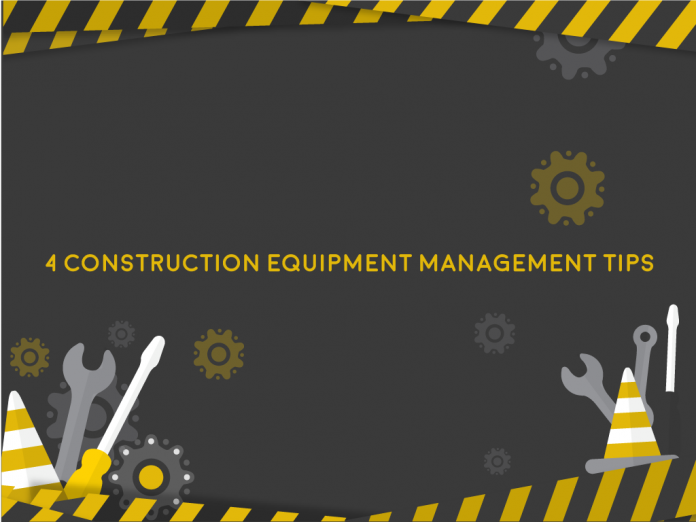When it comes to operating high-powered machinery and heavy equipment they can be incredibly high-priced investments. Whether you are a contractor or otherwise, it is imperative that proper management principles be applied to the maintenance as well as operations of this equipment; they are vital for the overall manufacturing and production process of any construction job.
Regular Maintenance Routine
The first and arguably most important step you can take when managing construction equipment is to establish routines that assure that you are properly taking care of your machinery, something all asbestos re-roofers should do. Each piece of equipment should always be inspected and monitored in terms of its fluid levels, tire inflations, fluid leaks, etc. It is important to check these things frequently in order to immediately identify and mediate anything that appears loose, cracked, or missing.
Regular maintenance typically involves efforts such as oil changes, new brakes, etc. that should be executed in line with the device’s specifications. If it is the case that your equipment is usually exposed and subject to harsh terrains and environmental conditions, then you are going to have to exercise a more thorough approach to maintenance.
Manufacturer Specifications
In order to maintain and manage heavy construction equipment, you are required to do way more than simply follow a prescribed maintenance schedule. Exercising all means as to take proper care of your construction equipment with the manufacturer’s guidance is crucial and critical to preventing operation failures as well as breakdowns.
Every piece of machinery in heavy construction equipment is designed with specific tasks to be executed –this falls in line with certain attachments and parts. It is never advisable to use equipment for purposes that they were not designed for and repair them with inappropriate means. Besides safety issues, make yourself well-versed with critical information such as the equipment’s weight limit for loads.
Employee Training and Machine Operation
A well-trained operator can make all the difference when it comes to the functional longevity and overall life span of any piece of construction equipment. He or she will inflict less wear and tear due to the fact that this person has a nuanced understanding of a heavy-duty machine’s full limitations as well as capabilities. The advanced knowledge of operation employees can also help you in managing the issues of your construction equipment.
Equipment Storage
When it comes to managing construction equipment, you need to involve yourself in making sure that each and every piece of machinery is properly kept in dry and secure locations. Storage is important in protecting your construction equipment from harmful and damaging elements. Keep your equipment in a covered location that is away from exposure to moisture and direct sunlight when not in use. It may seem too simple to count, but this truly does make a significant impact on your construction equipment management. Proper storage can prevent and reduce the risks of corrosion, rust, and other forms of degradation.
Key Takeaway
At the end of the day, all the intricacies that have to do with managing heavy equipment used in construction, all boil down to following regulative maintenance scheduling and storage in order to fully maximize their full capabilities and lifespan.


